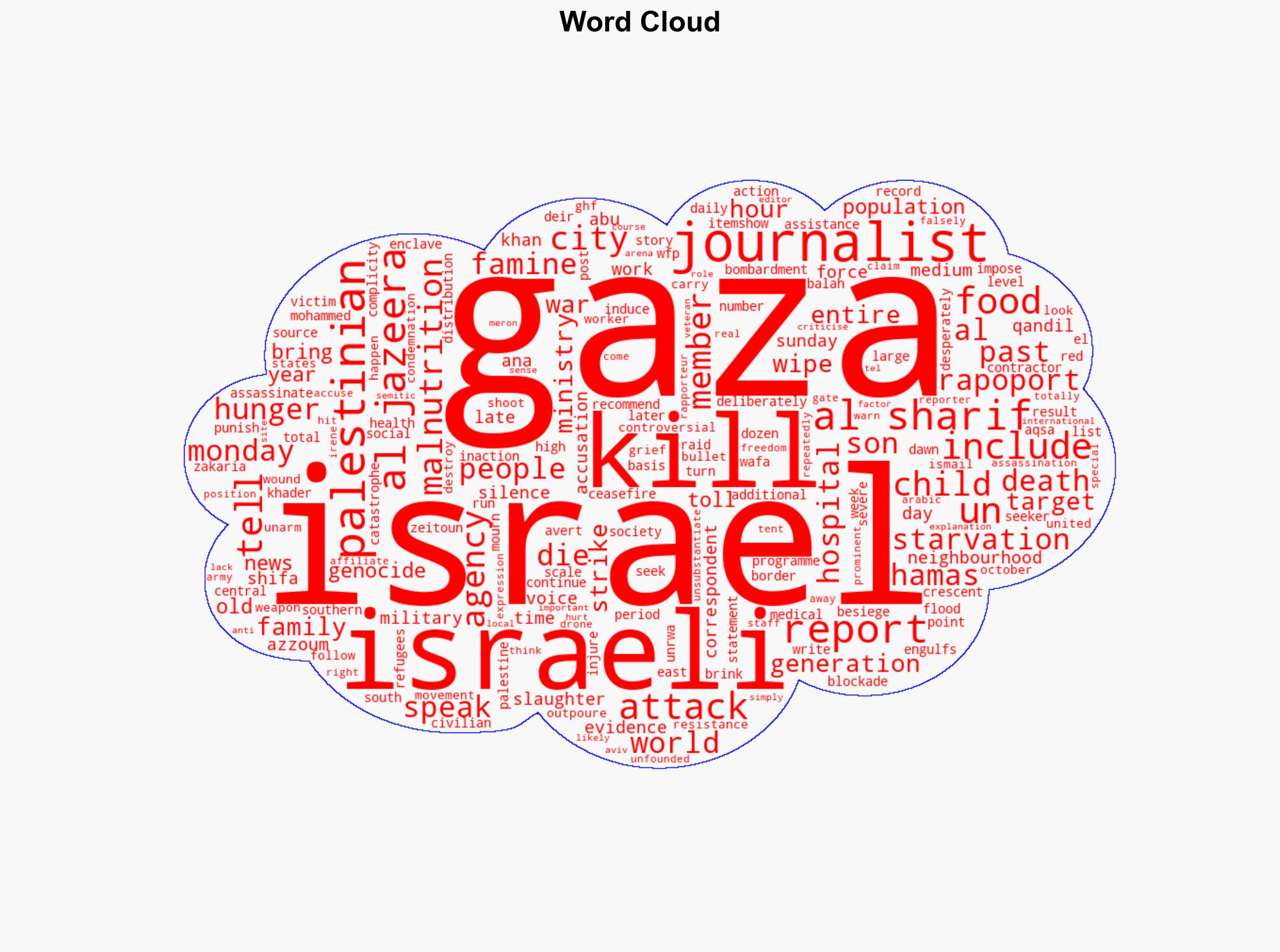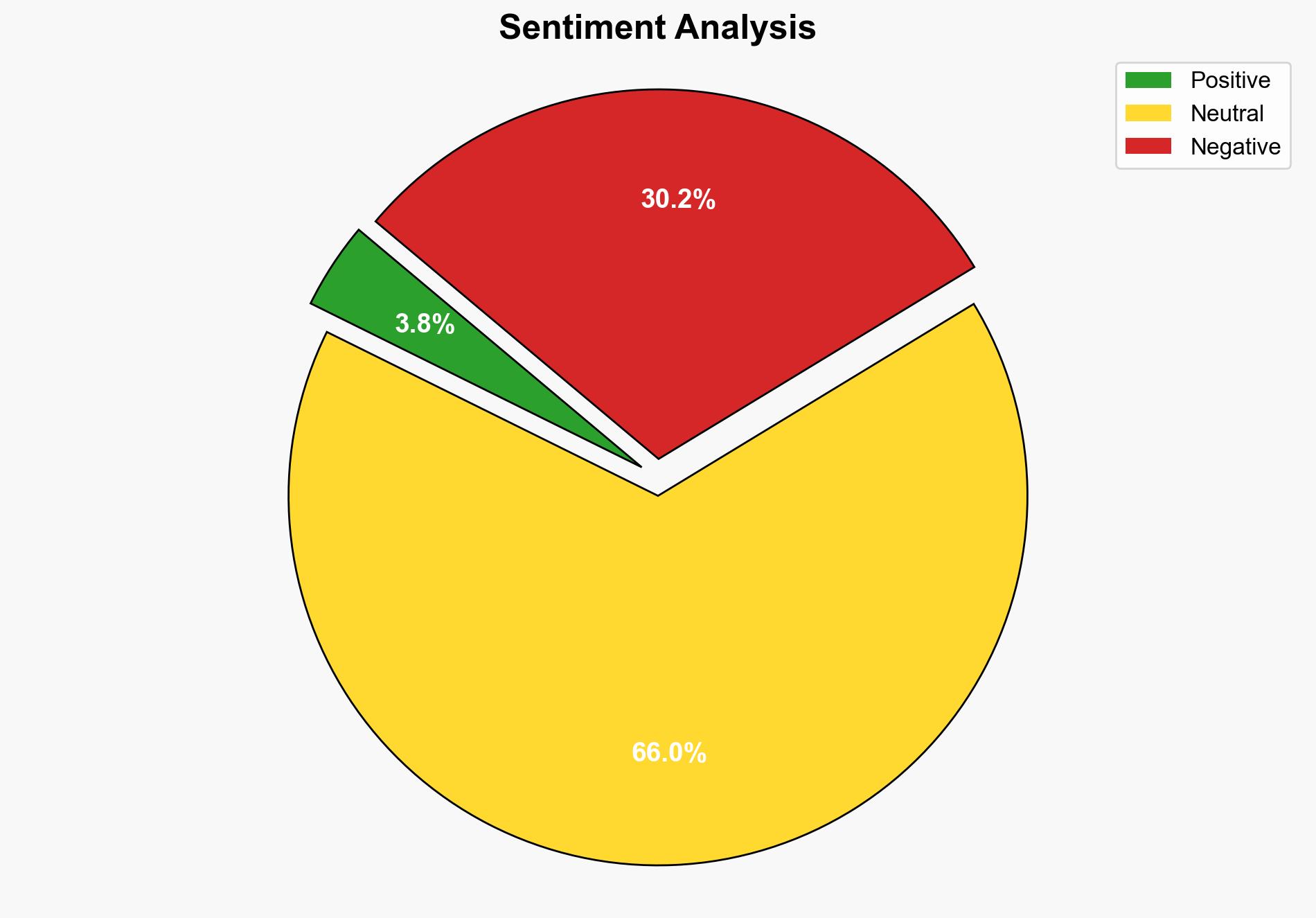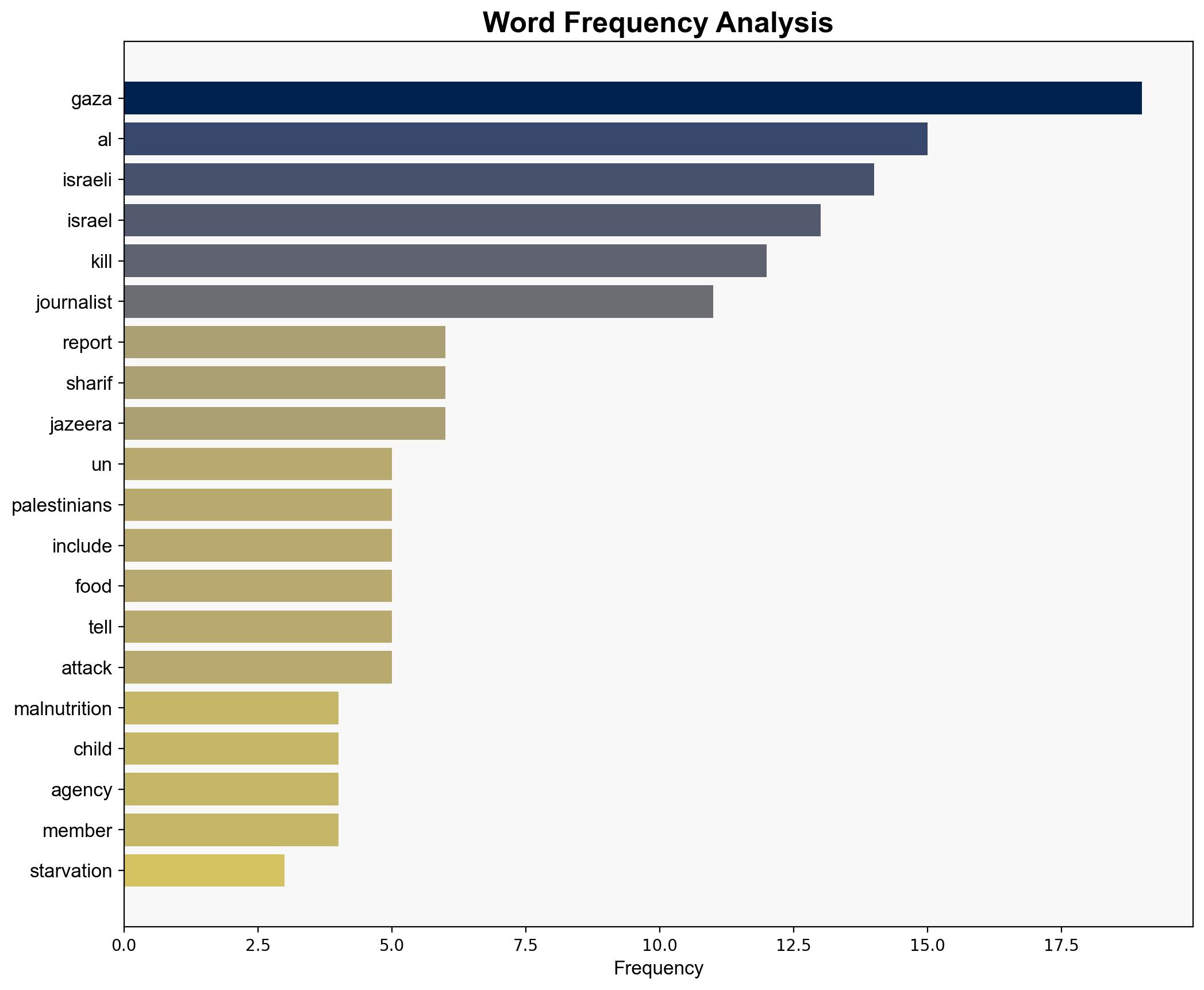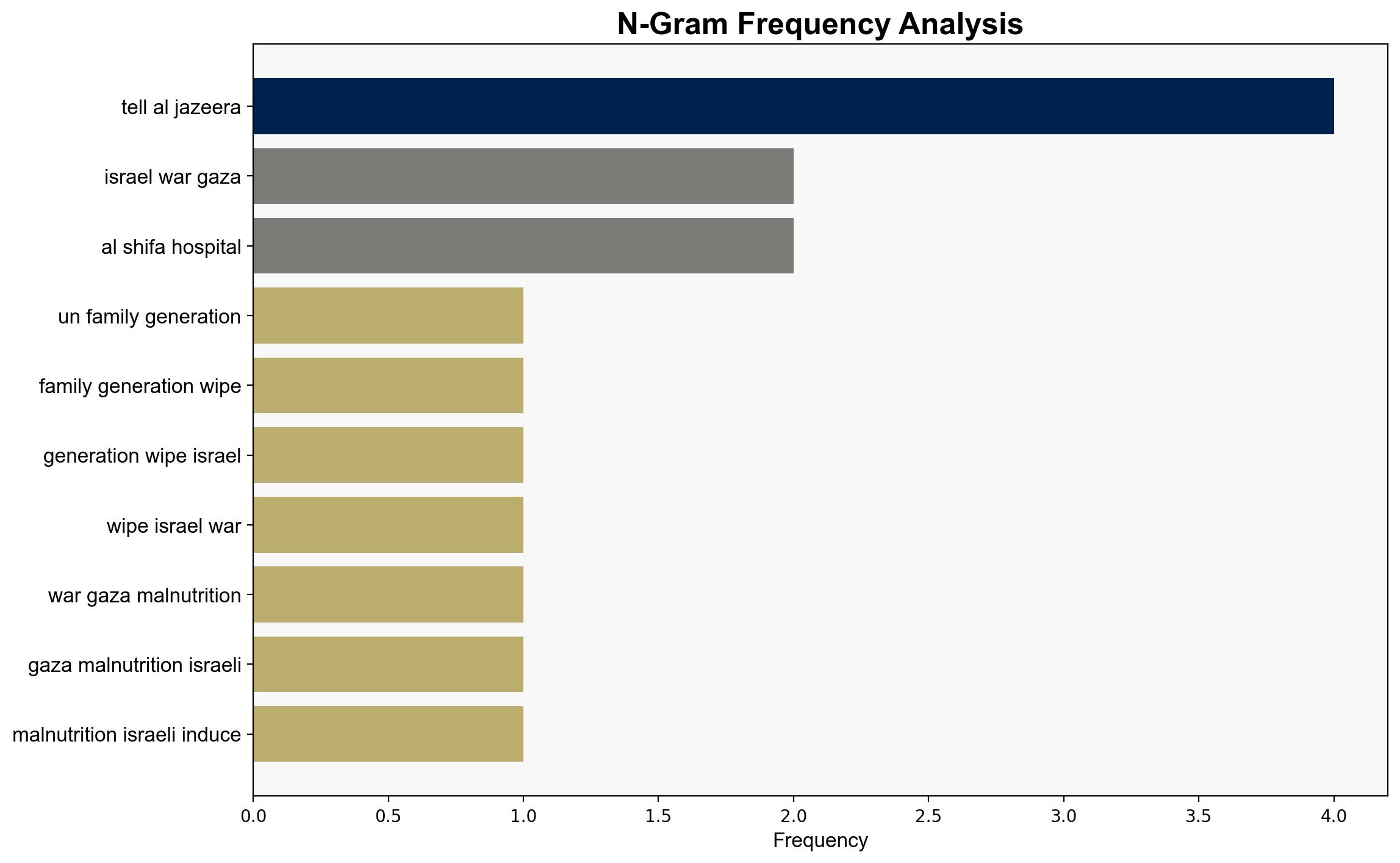UN says families a generation being wiped out by Israels war on Gaza – Al Jazeera English
Published on: 2025-08-11
Intelligence Report: UN says families a generation being wiped out by Israels war on Gaza – Al Jazeera English
1. BLUF (Bottom Line Up Front)
The most supported hypothesis is that the humanitarian crisis in Gaza, exacerbated by Israeli military actions and blockade, is leading to severe malnutrition and civilian casualties, including journalists. This situation risks escalating into a broader international crisis if not addressed. Confidence level: Moderate. Recommended action: Immediate international diplomatic intervention to negotiate a ceasefire and ensure humanitarian aid access.
2. Competing Hypotheses
1. **Hypothesis A**: The humanitarian crisis in Gaza is primarily a result of Israeli military actions and blockade, leading to severe malnutrition and civilian casualties, including journalists.
2. **Hypothesis B**: The reported humanitarian crisis is exaggerated or manipulated by certain media and organizations to gain international sympathy and pressure Israel politically.
Using ACH 2.0, Hypothesis A is better supported by the consistent reports from multiple sources, including UN agencies and humanitarian organizations, highlighting the dire conditions in Gaza. Hypothesis B lacks substantial evidence and relies on potential bias or misinformation.
3. Key Assumptions and Red Flags
– **Assumptions**: Hypothesis A assumes that the reports from UN agencies and humanitarian organizations are accurate and unbiased. Hypothesis B assumes potential bias or misinformation in media reports.
– **Red Flags**: Lack of independent verification of some claims, potential bias in reporting from involved parties, and the highly politicized nature of the conflict.
– **Blind Spots**: Limited access to Gaza for independent observers may hinder comprehensive assessment.
4. Implications and Strategic Risks
– **Humanitarian Impact**: Continued blockade and military actions could lead to a full-scale humanitarian disaster, increasing international pressure on Israel.
– **Geopolitical Risks**: Escalation could destabilize the region further, drawing in neighboring countries and impacting global diplomatic relations.
– **Psychological Impact**: Prolonged conflict may radicalize populations on both sides, complicating future peace efforts.
5. Recommendations and Outlook
- Immediate diplomatic intervention to negotiate a ceasefire and ensure humanitarian aid access.
- Deployment of international observers to verify conditions and provide unbiased reporting.
- Scenario Projections:
- Best Case: Ceasefire achieved, humanitarian aid flows freely, and tensions de-escalate.
- Worst Case: Escalation into broader regional conflict with significant civilian casualties.
- Most Likely: Continued international pressure leads to temporary ceasefire and partial aid access.
6. Key Individuals and Entities
– Anas Al Sharif: Journalist reportedly killed in Gaza.
– Mohammed Zakaria Khader: Child reportedly died from malnutrition.
– Irene Khan: UN Special Rapporteur on freedom of expression.
– Meron Rapoport: Israeli journalist providing critical analysis.
7. Thematic Tags
national security threats, humanitarian crisis, regional conflict, media bias




